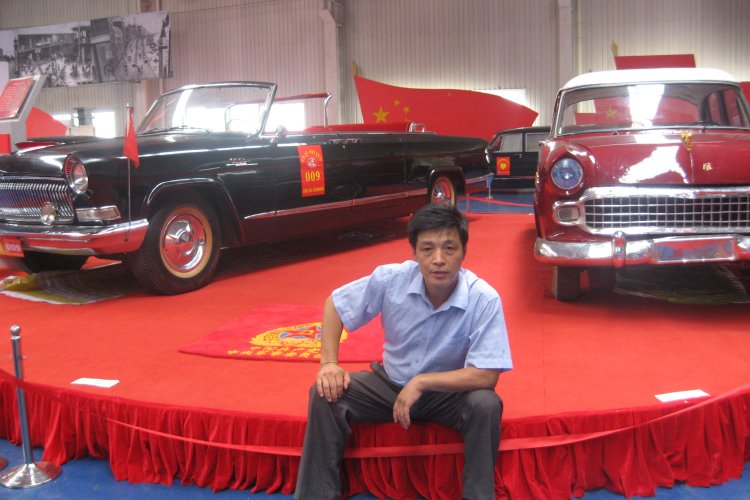Man Bites Dog! Blake Morrison and the strangeness of "ordinary" life
Blake Morrison will be in Beijing this weekend for the Bookworm International Literary Festival. His workshop on Sunday on Life Writing is already sold out, but there are still a few tickets for his "In Conversation" with Justin Hill on Saturday at 3pm. The reason why his workshop is sold out is simple. Blake Morrison is a pioneer.
When he wrote And When Did You Last See Your Father in 1992, writing about your own life – if you weren’t famous or involved in derring-do – was almost unheard of. Yet this intimate memoir (filmed in 2007 starring Colin Firth – Pride and Prejudice, Bridget Jones Diary – as Morrison) immediately found an audience, and proved the harbinger of a storm of “ordinary” life stories.
Today the term “Life Writing” has replaced the musty “memoir” and round the world people are reading, writing, and studying how to take their private world public. Morrison has been criticized for his confessional style, peaking with the whipping he took for As If (1998), his account of the trial of the two ten-year-old boys who killed two-year-old, James Bulger, in Liverpool, England, in 1993. For that book he was excoriated by Germaine Greer and trashed by the New York Times. Today Morrison teaches Life Writing at London’s Goldsmith College, and has moved to safer ground as a novelist. But he continues to be intrigued by what happens when you try to write honestly about yourself.
Before setting off for Beijing he talked to the Beijinger by phone from his home in London.
the Beijinger: Why is Life Writing so popular?
Blake Morrision: The rise of memoir reflects the need that we have for personal authenticity, for reliable narrators. The world is so complicated and we distrust so many of the messages that are out there coming at us … So to read someone’s candid account of an ordinary family, ordinary circumstances – that seems to move us.
tbj: What’s the current state of Life Writing?
BM: Today there are two things that are making people a bit jaded. One is the hoaxes – like [James Frey’s] A Million Little Pieces – where heart rending stories have turned out to be cynical pieces of artifice. The other is the glut of “Misery Memoirs”, there have just been too many stories about child abuse, for example, and people are getting a bit worn out by it. Recently I have been judging the Mind Book of the Year Award [for a book illuminating mental health issues] and out of 100 entries, the number of “daddy don’t do it, mummy I hate you” books is quite striking.
tbj: Are the stories beginning to seem banal?
BM: I remember in the ‘80s reading so many novels where the need was to be exotic, to be extraordinary – Marquez, Rushdie. The idea of owning up to coming from an ordinary family, where nothing particularly remarkable happened, well! (laughs) Maybe the exotic will come back into fashion now, as we go into an economic recession and people will want to escape.
tbj: Is there an ethics to Life Writing?
BM: I think it’s basically a matter for individual conscience and in the case of And When I showed the manuscript to my mother and felt I needed her permission and approval. But some people feel they don’t. There are libel laws to protect people, of course. But it is a really, really, difficult to know where to draw the line. A friend of mine is about to publish a book where she talks about her teenage son’s drug addiction. It’s very candid, very open and she describes events that are very recent. And my immediate reaction was “Oh my God, writing about children who are alive and still growing and being formed. I’m not sure that she is going to be able to get away with it.” In fact, she does get away with it. Partly because her son gives permission and, even though not quite through it, or mature, gives consent. It’s also a matter of tone and tact in the telling.
tbj: Why do you think you were so criticized for your book As If?
BM: When you write about murder there’s always a feeling that it’s opportunistic. But I think that there was so much rage - for anyone who has ever been a parent, the idea of losing a child, it’s highly emotive stuff. But secondly there was the method of the book … I talked about my own family, I talked about my own childhood. And people were just very uncomfortable with that.
tbj: Looking back do you think you went too far in personalizing the story?
BM: I felt very passionate about children of ten being put on public trial, being sent to prison for a long time. And I knew to engage people, to make them think about it again, would be very hard. It would have to be in a new form, not just another piece of reportage.
tbj: How about seeing your own life on film, starring Colin Firth (Mr Darcy)?
BM: Well (laughs). No, he doesn’t look like me. But then it could have been more ridiculous. He’s also played Nick Hornby (Fever Pitch) and he’s bald!
tbj: In And When you relate a scene where a man bites a dog on the subway. Did that really happen?
BM: Yes! (laughs) “Man Bites Dog!” The assumption is that you’d never see that. But I think when you are in a sort of manic state, extraordinary things start happening around you, or maybe you just notice them more. [It] seemed to be part of this state of grief I was in, because my father was going to die. But I can assure you I didn’t make it up! You couldn’t make it up. That’s one example where you can see the power of Life Writing. In fiction you wouldn’t care, but because you are in the middle of a tale where you trust the teller, you do.
Browse our March issue (online version here) for interviews with many of the other authors appearing at the festival.
You can browse the events here or on the Bookworm's official Literary Festival page.






